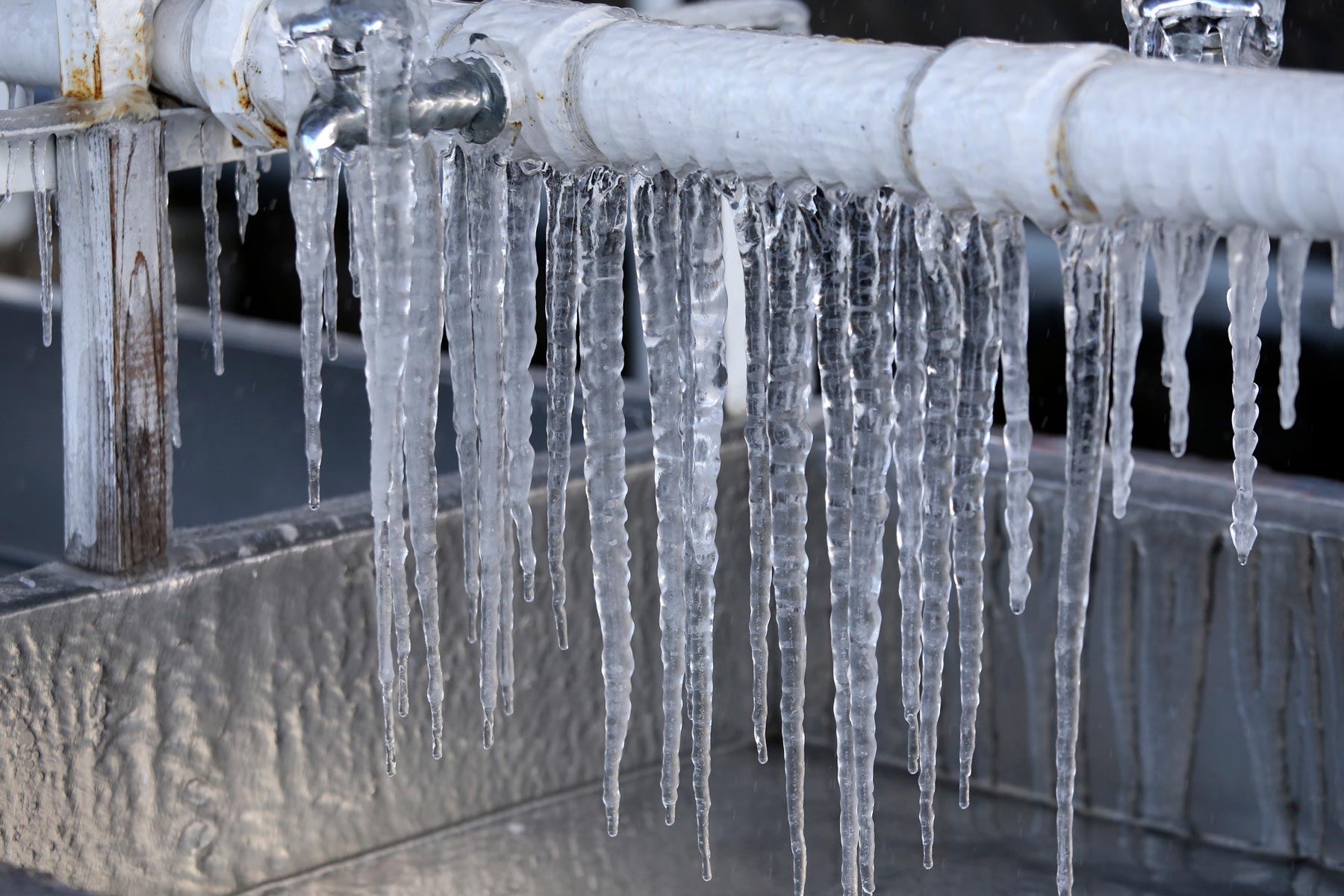How to Prevent Frozen Plumbing in Winter: Pro Advice
How to Prevent Frozen Plumbing in Winter: Pro Advice
Blog Article
Here down the page you'll find a good deal of good quality additional info in relation to How To Avoid Freezing Pipes.

Cold weather can ruin your pipes, particularly by freezing pipes. Right here's just how to stop it from happening and what to do if it does.
Introduction
As temperatures decrease, the danger of frozen pipes increases, potentially resulting in expensive fixings and water damage. Recognizing just how to prevent frozen pipelines is essential for property owners in cold environments.
Avoidance Tips
Protecting prone pipes
Cover pipelines in insulation sleeves or use warmth tape to secure them from freezing temperatures. Concentrate on pipes in unheated or exterior locations of the home.
Heating strategies
Keep indoor areas appropriately heated up, especially areas with pipes. Open closet doors to enable cozy air to circulate around pipelines under sinks.
Just how to determine icy pipelines
Search for reduced water circulation from faucets, unusual smells or sounds from pipes, and visible frost on exposed pipelines.
Long-Term Solutions
Architectural modifications
Consider rerouting pipelines far from exterior walls or unheated locations. Include additional insulation to attics, cellars, and crawl spaces.
Updating insulation
Invest in high-grade insulation for pipelines, attics, and walls. Proper insulation helps maintain consistent temperature levels and reduces the threat of icy pipelines.
Safeguarding Outdoor Pipes
Garden hose pipes and outdoor taps
Detach and drain garden tubes before winter. Mount frost-proof faucets or cover exterior faucets with insulated caps.
Recognizing Frozen Pipelines
What triggers pipelines to freeze?
Pipelines freeze when revealed to temperatures listed below 32 ° F (0 ° C) for extended durations. As water inside the pipes ices up, it expands, taxing the pipeline walls and potentially creating them to break.
Threats and damages
Icy pipes can cause water supply interruptions, property damage, and costly repair services. Ruptured pipelines can flooding homes and create extensive structural damage.
Signs of Frozen Pipes
Recognizing icy pipes early can stop them from rupturing.
What to Do If Your Pipes Freeze
Immediate activities to take
If you presume frozen pipelines, keep taps available to alleviate stress as the ice melts. Make use of a hairdryer or towels soaked in warm water to thaw pipes gradually.
Final thought
Protecting against frozen pipelines requires aggressive measures and fast responses. By comprehending the reasons, indicators, and safety nets, homeowners can secure their plumbing during cold weather.
Helpful Tips to Prevent Frozen Pipes this Winter
UNDERSTANDING THE BASICS: WHY PIPES FREEZE AND WHY IT’S A PROBLEM
Water freezing inside pipes is common during the winter months, but understanding why pipes freeze, and the potential problems it can cause is crucial in preventing such incidents. This section will delve into the basics of why pipes freeze and the associated problems that may arise.
THE SCIENCE BEHIND FROZEN PIPES
When water reaches freezing temperatures, it undergoes a physical transformation and solidifies into ice. This expansion of water as it freezes is the primary reason pipes can burst. As the water inside the pipe freezes, it expands, creating immense pressure on the walls. If the pressure becomes too great, the pipe can crack or rupture, leading to leaks and water damage.
FACTORS THAT CONTRIBUTE TO PIPE FREEZING
Low Temperatures: Extremely cold weather, especially below freezing, increases the risk of pipes freezing. Uninsulated or Poorly Insulated Pipes: Pipes located in unheated areas, such as basements, crawl spaces, or attics, are more prone to freezing. Insufficient insulation or lack of insulation altogether exacerbates the problem. Exterior Wall Exposure: Pipes running along exterior walls are susceptible to freezing as they encounter colder temperatures outside. Lack of Heating or Temperature Regulation: Inadequate heating or inconsistent temperature control in your home can contribute to frozen pipes. PROBLEMS CAUSED BY FROZEN PIPES
- Pipe Bursting: As mentioned earlier, the expansion of water as it freezes can cause pipes to burst, resulting in significant water damage.
- Water Damage: When pipes burst, it can lead to flooding and water damage to your property, including walls, ceilings, flooring, and personal belongings.
- Structural Damage: Prolonged exposure to water from burst pipes can compromise the structural integrity of your home, leading to costly repairs.
- Mold and Mildew Growth: Excess moisture from water damage can create a favorable environment for mold and mildew growth, posing health risks to occupants.
- Disrupted Water Supply: Frozen pipes can also result in a complete or partial loss of water supply until the issue is resolved.
WHY CERTAIN PIPES ARE MORE PRONE TO FREEZING
- Location: Pipes located in unheated or poorly insulated areas, such as basements, crawl spaces, attics, or exterior walls, are at higher risk of freezing.
- Exterior Pipes: Outdoor pipes, such as those used for irrigation or exposed plumbing, are particularly vulnerable to freezing as they are directly exposed to the elements.
- Supply Lines: Pipes that carry water from the main water supply into your home, including the main water line, are critical to protect as freezing in these lines can affect your entire plumbing system.
- Underground Pipes: Pipes buried underground, such as those connected to sprinkler systems or outdoor faucets, can be susceptible to freezing if not properly insulated.
https://busybusy.com/blog/helpful-tips-to-prevent-frozen-pipes-this-winter/

I'm just very enthusiastic about 6 Ways to Prevent Frozen Pipes and I'm hoping you enjoyed reading our post. In case you appreciated our post plz remember to pass it around. I treasure your readership.
Recurring Service Plans Report this page